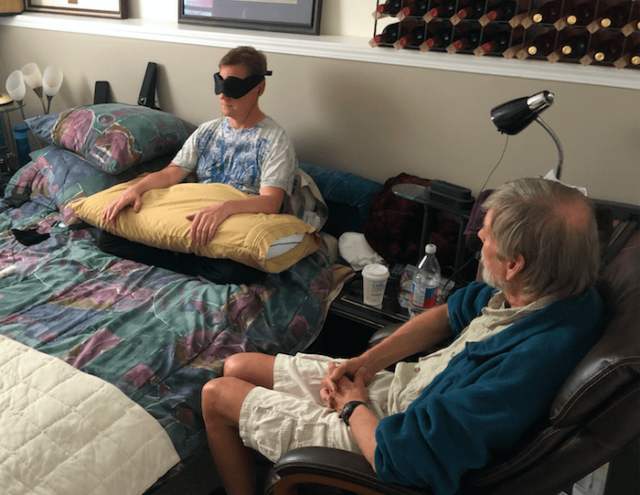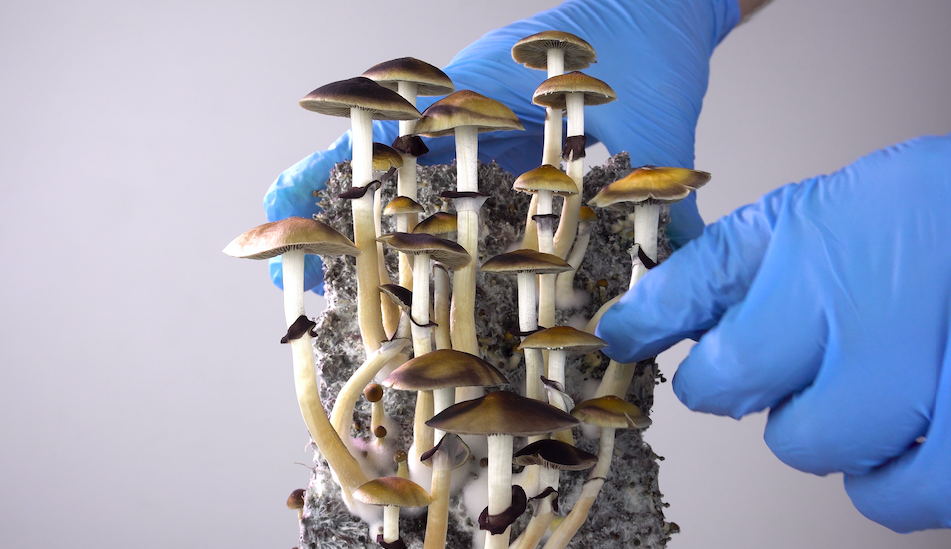After becoming the first Canadian to receive legal psilocybin-assisted therapy for a severe health condition, Thomas Hartle was recently denied further access to the treatment by Health Canada.
Despite waiting nearly 18 months for a decision, Hartle’s request was denied at the beginning of March, sparking concerns about patients’ access to this promising form of therapy.
In an effort to address what they view as a severe and unjust limitation on access to psilocybin for therapeutic purposes, Hartle and seven other patients filed a lawsuit in Toronto on July 27, 2022.
The lawsuit asserts that the patients have a constitutional right to use psilocybin for medical purposes and seeks to challenge current restrictions on its access. By taking legal action, Hartle and the rest of the group aim to bring attention to the need for expanded access to this potentially life-changing treatment.
Health Canada’s recent decision to deny Hartle further access to the treatment has raised further questions around access from psilocybin advocacy groups like TheraPsil. The group has been involved with legal proceedings on this issue for several months.
Hartle first obtained access to psilocybin through a Section 56 exemption in 2020 and he was able to continue treatment through the Special Access Program once the exemption expired. However, his recent application for a new exemption was rejected.
“It was just a decision that can’t be called anything other than cruel, it seems that they are not going to respond compassionately in this case. Thomas should not have to wait on a bureaucrat to confirm whether his doctor’s decision is clinically sound,” said TheraPsil’s Communications and Training Specialist John Gilchrist in an interview with Mugglehead.
TheraPsil, a Canadian non-profit, has been fundraising to pay the legal fees, actively pushing for safe psilocybin access and has travelled to Ottawa to raise awareness about legalization on more than one occasion. Gilchrist says the lawyers representing the patients have been working for a heavily discounted rate but fundraising is required nonetheless.
Minister @Carolyn_Bennett,
The 511-day wait before Thomas Hartle's exemption was denied is unacceptable
Time is limited for terminal patients and they cannot afford to wait for your permission to use their medicine
Please do the right thing and agree to regulate psilocybin!
— TheraPsil (@TheraPsil) March 6, 2023
Read more: Psilocybin advocates protest in Ottawa demanding fair medical access
Read more: Optimi Health partners with patient advocate to launch new psilocybin product
Fundraising to pay legal fees is TheraPsil’s top priority
Gilchrist says fundraising to pay the legal fees for the patients is TheraPsil’s number one priority at the moment.
TheraPsil is collaborating with Red Light Holland Corp (CSE: TRIP) (FSE: 4YX) (OTC: TRUFF), which will be running a matching donation campaign of up to $10,000 with the non-profit.
“So we’re trying to keep it moving, keep it evolving and keep money coming in to pay the legal team,” he added.
Red Light Holland is a Canadian organization with operations in the Netherlands that makes psilocybin truffles.
Gilchrist says that in addition to the aforementioned lawsuit, there is another ongoing judicial review underway in which over 100 healthcare practitioners led by lawyer Nicholas Pope are demanding that the government re-evaluates its refusals of their requests to use psilocybin legally as part of their training.
Read more: Optimi Health secures MDMA and psilocybin distribution agreement in Australia
Read more: Quebec becomes first province to pay doctors for psilocybin-assisted therapy
Psychedelics have shown promise but further research is needed: Health Canada
Mugglehead inquired about why Hartle was denied further access under a section 56 exemption and why the government department has such strict psilocybin regulations.
Health Canada said that psychedelics like psilocybin have shown promise in some cases, but further research is still necessary. The organization says access to psilocybin may sometimes be appropriate, but only via the Special Access Program (SAP), clinical trials or a subsection 56 (1) exemption.
“Clinical trials remain the most appropriate way to advance research about products with a possible medical benefit. Both clinical trials and the SAP have safeguards and requirements in place to protect the health and safety of patients, help ensure the quality of the drug, and provide for administration and oversight by a qualified professional in accordance with national and international, ethical, medical and scientific standards,” said Mark Johnson, a spokesperson from Health Canada in a statement provided to Mugglehead.
“Lastly, patients can request an exemption on compassionate grounds when other paths are unsuitable. Due to ongoing litigation, it would be inappropriate to comment further,” he added.
Read more: Reunion Neuroscience files lawsuit against Mindset Pharma for copying drug compound
Read more: Oklahoma assembly passes psychedelics research bill for Veteran PTSD
Thomas Hartle completed the first legal psilocybin-assisted therapy session in Canada on August 12, 2020 with TheraPsil’s founder Bruce Tobin and the therapy had a very positive impact on him.
Hartle was diagnosed with stage four colon cancer in 2016 and has found psilocybin to be the most effective treatment by far for his condition.
“Thomas is an incredible guy, he’s so resilient and he’s going to keep this fight going to benefit other people that might be in his position in the future,” said Gilchrist.

Thomas Hartle at his psychedelic-assisted therapy session on August 12, 2020. Photo via TheraPsil
Currently, psilocybin and its active ingredient psilocin are considered Schedule III drugs in Canada’s Controlled Drugs and Substances Act (CSDA).
“The CDSA prohibits the possession, production, growing, selling, sharing, importing and exporting of psilocybin and psilocin, including for medical purposes, unless otherwise permitted under regulations pursuant to the CDSA, or where an exemption has been granted under subsection 56(1) of the CDSA,” reads the statement of claim in the ongoing lawsuit involving the patients.
rowan@mugglehead.com













